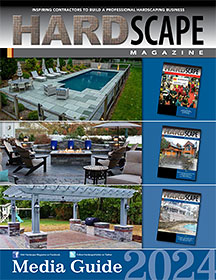Articles written by guest contributors

Monroe Porter
Simple financial mistakes you can avoid
By Monroe PorterMany contractors do not have a strong financial background and do not like accounting. However, there are simple procedures and financial logics that can help you avoid bad financial situations. This article is designed to identify simple errors contractors tend to make.
• Don’t worry too much about cash
How much cash is in the bank can be a misleading factor when studying the health of a business. Cash makes us feel good and is deeply ingrained in our psyche. As a kid, if you made a few bucks mowing a yard or running an errand, it was great. You had money to spend. Business does not exactly work this way. Just because we have cash on hand does not mean the business is making money at that moment.Every business needs cash. However, cash is more of a business tool that an actual measurement of success. You need cash to pay your bills and keep the business going but it is not necessarily a measure of profit.
A good example of this is when contractors gear up in the spring. The business is making money but much of the actual cash is being eaten away by payroll, material bills, etc. In the fall, many contractors gear down for the winter. They may actually lose money in December but have plenty of cash on hand because they are collecting receivables from past work with no money going out.
Cash on hand might be compared to pulling a trailer. If you are doing everything right, it is always following you. If you charge the right price, make a profit and collect your money, cash follows your business effort.
• Use an accrual statement
You can pay taxes on a cash statement if that is what your accountant advises but use an accrual statement for financial review. An accrual statement shows all costs including accounts receivable and accounts payable to show a true profit.A cash statement only shows what you have paid and collected. On that note, enter accounts payable into your accounting system as the bills come in. Even if you do not have enough money to pay the bill, it still is there to show a true profit or loss. Don’t merely use your accounting system as a checkbook and only make entries when paying bills. Try to keep your financial records as current as possible.
• Don’t classify client deposits as sales
Don’t put customer deposits into sales when you put deposits into the bank. Show them as a negative receivable or a liability. Deposits represent money you owe the customer until work is actually performed. This is a little complicated but vital to creating an accurate statement. You also don’t want to spend your customer’s money and then not have the money left to do their job.• Price repairs profitably
If you do repairs, you must either price them time and material with a minimum charge, or if quoted, build enough into the repair quote to cover sales cost. No matter how you calculate sales expense, it costs a minimum of $100 to run a sales call. ($50 an hour x 2 hours is $100).So how can you quote a $100 repair? You can’t. And this gets even more complicated. Suppose, you only sell 50% of the repairs you estimate. Now you need $200 to recover the job you won and the job you lost. If you must give estimates, make sure you build something into the quote to cover sales costs.
• Avoid insider theft
Internal theft continues to be a problem for contractors. Through the years, we have found that over 10% of our contractor clients had experienced embezzlement and less than 1% had a fire. Yet most contractors are insured for fire but not theft. The cost of this insurance varies greatly from state to state and you may want to “bond” your bookkeeper or office manager. However, bonding only applies to the person you have bonded. You want to talk with your insurance person about what options are available in your state.Most banks today do not want to send you a copy of the checks. Pay more for this service and have the banking and credit card statements sent to your house. There are lots of ways for employees to steal but writing checks and charging items to your credit card is the easiest way to take advantage of you.
• Don’t overstaff
Look at your crew size and don’t over staff jobs. A few years ago, we had a contractor client install roofing on identical apartment buildings and track costs. The only factor that impacted production costs was crew size. The smaller the crew, the fewer hours it took to roof the job.We have contractors of different types who join our networking groups that have 6 or 7 people on an install crew. We tell them to drop 1 person and the production tends to take the same amount of time.
• Hold monthly financial meetings
Have a financial meeting each and every month. At the meeting review a profit and loss statement, a balance sheet, your accounts payable, your accounts receivable, your sales, closing ratios and your backlog. Want better accounting records? Then use them. As you ask questions and explore the data, it will become more and more accurate.Financial discipline and understanding is imperative to running a business. Just because you don’t like to do something, don’t find an excuse not to do it. I don’t like to go to the dentist but I still go.
Monroe Porter and PROOF Management offer business consulting through industry networking groups and he can be reached at (804) 267-1688.














